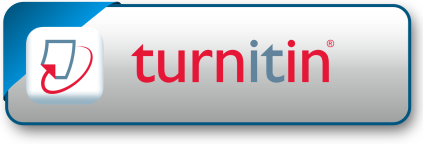MEWUJUDKAN OPEN GOVERNMENT DAN ELECTRONIC GOVERNMENT DALAM KERANGKA SDGs DI PEMPROV DKI JAKARTA
DOI:
https://doi.org/10.24853/swatantra.22.1.41-52Keywords:
open government, electronic government, kerangka SDGsAbstract
Capaian pelaksanaan SDGs di Pemprof DKI Jakarta, hingga sekarang belum terealisasi dalam semua aspek, meskipun upaya mewujudkan sebagian tujuan SDGs telah mengarah pada pembangunan berkelanjutan. Kompleksnya permasalahan yang ada membuat tidak mudahnya mewujudkan keberhasilan tujuan SDGs. Tujuan penelitian adalah menganalisis Open Government dan Electronic Government dalam Kerangka SDGs di Pemprov DKI Jakarta. Penelitian ini menggunakan metode deskriptif, dan pendekatan kualitatif, karena menjelaskan dan menganalisis fenomena objek penelitian ini. Hasil penelitian, bahwa Pemprov DKI Jakarta telah membuat kebijakan sistem open data terkait sistem pelayanan informasi publik, yang pelaksanaannya dapat diwujudkan melalui program Jakarta Open Data dan e-government. Hal ini merupakan salah satu program dari Pemprov DKI Jakarta berbentuk portal data berbasis terpadu yang menyediakan berbagai data dari keseluruhan Unit Kerja di Pemprov DKI Jakarta. Dengan Jakarta Open Data dan e-governance tersebut, maka mampu menyajikan basis data pembangunan dengan pelayanan efektif dan efisien kepada masyarakat secara valid, terbuka, terintegrasi, dan platform berbasis online atau web tersebut telah digunakan sebagai sarana komunikasi yang interaktif antar pejabat pemerintah dan masyarakat, sehingga semua informasi atau pesan pembangunan dapat tersampaikan.References
Alfansyur, A., & Mariyani, N., (2020). Seni Mengelola Data: Penerapan Triangu lasi Teknik, Sumber Dan Waktu Pada Penelitian Pendidikan Sosial. Historis: Jurnal Kajian, Penelitian, Dan Pengem bangan Pendidikan Sejarah, 5(2), 146–150.
Ardina, M., & Saharuddin, E., (2021). Imple mentasi Keterbukaan Informasi Publik di Kabupaten Bantul. Jurnal Interaksi: Jurnal Ilmu Komunikasi, 5(1), 49–61.
Creswell, J., & Creswell, J. (2018). Research Design: Qualitative, Quantitative, and Mixed Methods Approach. California: Sage, p. 43.
Damanik M, P. dan Purwaningsih E, H, (2017). E-Government dan Aplikasinya di Ling kungan Pemerintah Daerah (Studi Kasus Kabupaten Bengkalis Propinsi Riau).
Jayanti N, K, D, Ari (2017). Kajian Analisa: Penerapan dan Pengembangan E-Government pada Pemerintah Pro vinsi Bali. Program Studi Sistem Informasi, STMIK STIKOM Bali.
Lely P.D. Tampubolon (2016). Pemeringkatan E-Government Indonesia (Pegi) dan Pemanfaatan Teknologi Informasi di DKI Jakarta.
Masyhur F., (2017). E-Government di Indone sia: Studi Literatur Sistematis dari Perspektif Dimensi Pemeringkatan e-Government Indonesia (PeGI)(https: //jurnal.kominfo.go.id /index.php/ iptek kom/issue/view/154
Moleong, L. J. (2018). Metodelogi Penelitian Kualitatif. Bandung: Remaja Rosda karya, p. 23.
Miles, M., Huberman, A., Rohidi, T., & Mulyarto (2014). Analisis data kualita tif: buku sumber tentang metode-meto de baru/Matthew B. Miles, A. Michael Huberman; penerjemah, Tjetjep Ro hendi. Jakarta: Universitas Indonesia (UI-Press), p. 31.
Mariam, S. M. N., (2017). Mewujudkan good governance Melalui Pelayanan Pulik. JIPSI: Jurnal Ilmu Politik Dan Komu nikasi, 6(1), 1–17.
Nurdin A, H, M, Nurdin (2018). Menuju Pemerintahan Terbuka (Open Govern ment) Melalui Penerapan e-govern ment. Jurnal MP (Manajemen Pemerin tahan): Vol.5, No.1 – Juni 2018. https://www.researchgate.net/profile/ Andi-Heny.
Pratama, B., & Ari, D. (2021). Penguatan Pemahaman Masyarakat Terhadap Keterbukaan Informasi Publik. Surya Abdimas, 5(3), 312–321.
Puspitasari, A. E., & Harsasto, P., (2019). Penerapan Transparansi Melalui Web site (www. jakarta. go. id) Pemerintah Provinsi DKI Jakarta (Periode Tahun 2017-2018). Journal of Politic and Government Studies, 8(2), 91–100.
Sosiawan, E. A. (2015). Evaluasi Implementasi e-government Pada Situs Web Pemerin tah Daerah Indonesia: Perspektif Con tent dan Manajemen Seminar Nasional Informatika (SEMNASIF). Seminar Na sional Informatika, 1(5).
Sofianto A, (2019). Integrasi Target Dan Indikator Sustainable Development Goals (SDGs) Ke dalam Perencanaan Pembangunan Daerah Di Jawa Te ngah. Jurnal Litbang Provinsi Jawa Tengah, Vol 20 No 2.
Downloads
Published
Issue
Section
License
Copyright aims to protect the specific way the article has been written to describe an experiment and the results. SWATANTRA is committed to its authors to protect and defend their work and their reputation and takes allegations of infringement, plagiarism, ethical disputes, and fraud very seriously. SWATANTRA is published under the terms of the Attribution-NonCommercial 4.0 International (CC BY-NC 4.0). Authors retain copyright and grant the journal right of first publication (online and print) with the work simultaneously. We use the restrictive license (non-commercial) as follows:
BY (attribution): Users are allowed to share, distribute and redistribute the published article in any medium or format, with an identification of the authors and its initial publication in this journal. Authors are encouraged to post and distribute their articles immediately after publication (e.g., institutional or public repositories, personal websites). Authors are allowed to enter into additional contractual arrangements for the non-exclusive distribution of the published and an acknowledgment of its initial publication in this journal.
NC (non-commercial): Users are not allowed to use the article commercially without the permission of the authors. Authors agree explicitly that the published article is indexed worldwide in databases, repositories, and indexation services, even if these services operate on a commercial basis. Authors grant SWATANTRA explicit the right to include the published articles in databases, repositories, and indexation services. You can see examples of personal and commercial use on this link.
Below you may find the full text of the license signed by authors.
License
- License to Publish
The non-commercial use of the article will be governed by the Attribution-NonCommercial 4.0 International (CC BY-NC 4.0). The author hereby grants SWATANTRA an exclusive publishing and distribution license in the manuscript include tables, illustrations, or other material submitted for publication as part of the manuscript (the “Article”) in print, electronic, and all other media (whether now known or later developed), in any form, in all languages, throughout the world, for the full term of copyright, and the right to license others to do the same, effective when the article is accepted for publication. This license includes the right to enforce the rights granted hereunder against third parties.
- Author’s Warranties
The author warrants that the article is original, written by stated author/s, has not been published before, contains no unlawful statements, does not infringe the rights of others, is subject to copyright that is vested exclusively in the author and free of any third party rights, and that any necessary written permissions to quote from other sources have been obtained by the author(s).
- User Rights
Under the Creative Commons Attribution-Non Commercial 4.0 International (CC BY-NC 4.0) license, the author(s) and users are free to share (copy and redistribute the material in any medium or format) and adapt (remix, transform, and build upon the material). Users must give appropriate credit, provide a link to the license, and indicate if changes were made.
- Rights of Authors
Authors retain the following rights:
- Copyright, and other proprietary rights relating to the article, such as patent rights,
- The right to use the substance of the article in future own works, including lectures and books,
- The right to reproduce the article for own purposes, provided the copies are not offered for sale, and
- The right to self-archive the article.
- Co-Authorship
If the article was prepared jointly with other authors, the signatory of this form warrants that he/she has been authorized by all co-authors to sign this agreement on their behalf, and agrees to inform his/her co-authors of the terms of this agreement.








